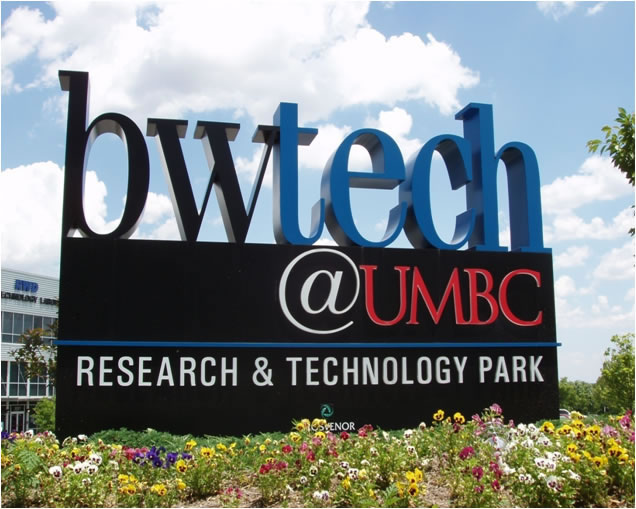Over 10 years, bwtech@UMBC Cyber Incubator’s CYNC program has become a mainstay among initiatives offering resources to Baltimore-area startups. The UMBC incubator created the program through a strategic partnership with aerospace and defense company Northrop Grumman, making it a prime example of corporate-startup connection in Maryland.
Even as programs for early-stage companies have proliferated in the region over the last decade, this one has maintained a distinctive offering: It focuses on helping startups in the cyber or intelligence community space, and specifically works with companies that are seeking to raise a seed or Series A round. That’s further along than companies that are typically involved in an accelerator.
The idea is that these companies can expand their network when seeking work with federal agencies in the U.S. Department of Defense or intelligence community. And CYNC also make other opportunities available. In the past, bwtech@UMBC Senior Manager for Cyber Initiatives Nick Zajciw points out, the companies have made hires, brought on new business and gotten connected to new opportunities.
“We want to help these companies grow in a measurable way,” he said.
These companies are paired with a “technical champion” from Northrop Grumman. As Zajciw points out, these experts have domain expertise. If a startup is working on radio technology, then they’re paired with an engineer working on radio systems.
Alums such as RunSafe Security and Huntress Labs have gone on to raise sizable funding rounds in recent years, while LightPoint Security was acquired last year by McAfee.
In the last week of January, CYNC kicked off programming with a new group of five startups. But this time around, the model looks a bit different.
Like many programs, 2020 brought the need to adapt to the pandemic’s shift to virtual programming. After a pause to reframe in the initial months of the pandemic, some changes were introduced on the structural level. From Zajciw’s perspective, these changes are welcome: For one, the virtual setup led the program to adapt a cohort model, shifting from the rolling admissions cycle it previously had. So the new companies are all entering as a group.
It also led CYNC to rethink the geographic area it covered. When applications opened in the fall, companies across the country were invited to join, rather than focusing solely on Maryland. That led to a cohort that includes companies from Chicago, Texas and California, as well as Maryland. This format allows the companies to all convene together, and then tailor the program individually for each one. Zajciw said the program can also look outside of this region for speakers.
Given the government-facing focus, this became a chance for companies from other areas to learn more about working with the federal government, which is a strength for Maryland, given its concentration of federal installations. There’s a difference between federal and commercial contracts, and CYNC can help companies to understand and navigate that.
“For some of the companies coming from different parts of the country, it’s a huge opportunity to realize what opportunities are available,” Zajciw said.
Here’s a quick look at the companies in this year’s program:
- StrangeWorks, an Austin-based software development company that has a platform for businesses seeking to develop quantum software
- Xaptum, a Chicago-based company aiming to be a telecom provider for Internet of Things. It created a network specifically for connected devices and edge computing.
- Refirm Labs, a Fulton, Maryland-based company specializing in cybersecurity for Internet of Things and embedded devices. Its platform vets and monitors firmware, which is the software that controls hardware.
- Enya.ai, a Palo-Alto, California-based company that aims to help developers build personalized offerings and simultaneously secure sensitive personal data
- Phobos, maker of Orbital, a platform that finds a company’s publicly-facing assets and analyzes them for pathways where an attacker might break in
- Oculi, maker of the SPU (Sensing and Processing Unit), a complete edge vision system for applications that are constrained by low power, bandwidth or latency.
Before you go...
Please consider supporting Technical.ly to keep our independent journalism strong. Unlike most business-focused media outlets, we don’t have a paywall. Instead, we count on your personal and organizational support.
Join our growing Slack community
Join 5,000 tech professionals and entrepreneurs in our community Slack today!

The person charged in the UnitedHealthcare CEO shooting had a ton of tech connections

From rejection to innovation: How I built a tool to beat AI hiring algorithms at their own game

Where are the country’s most vibrant tech and startup communities?


